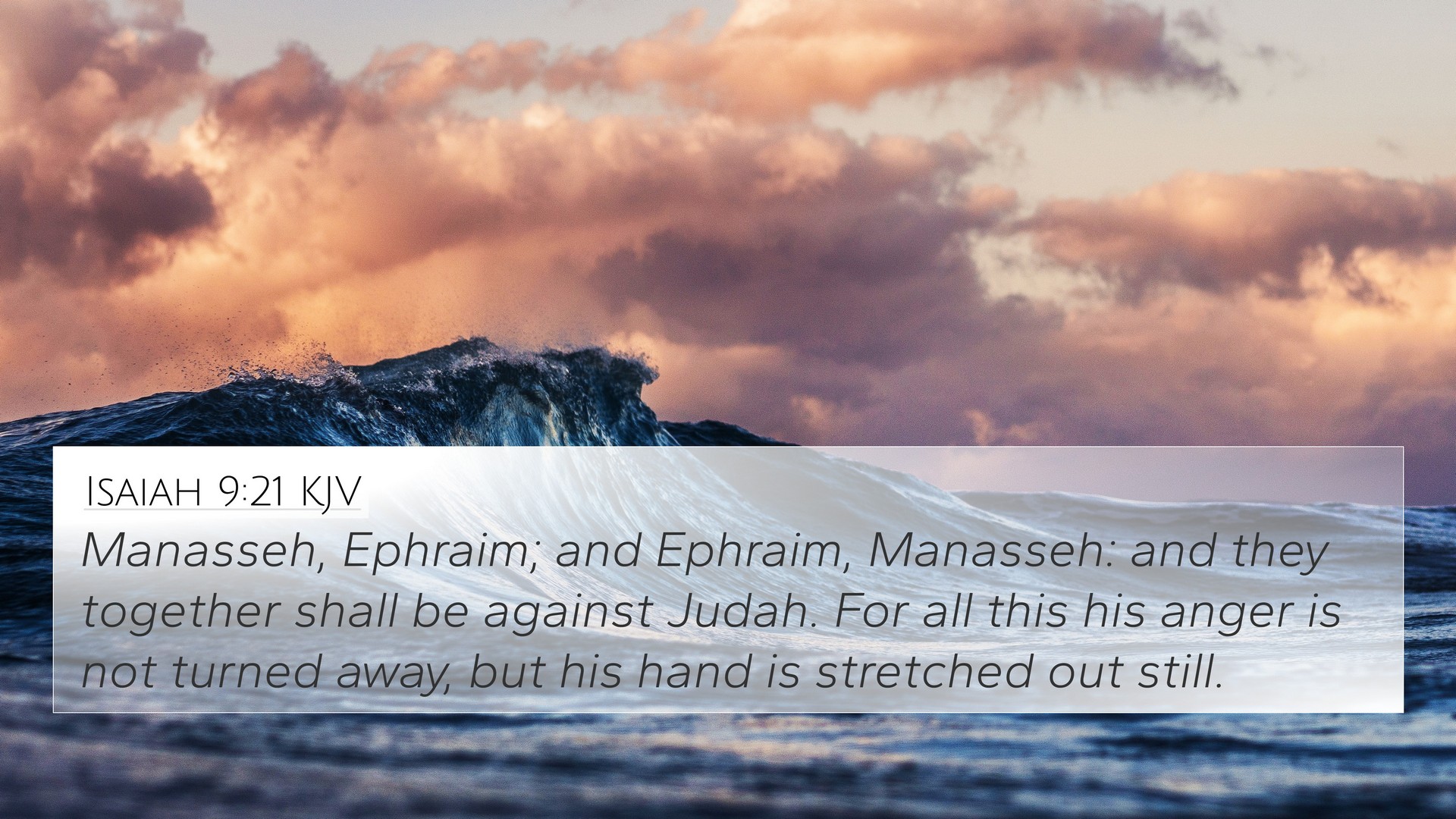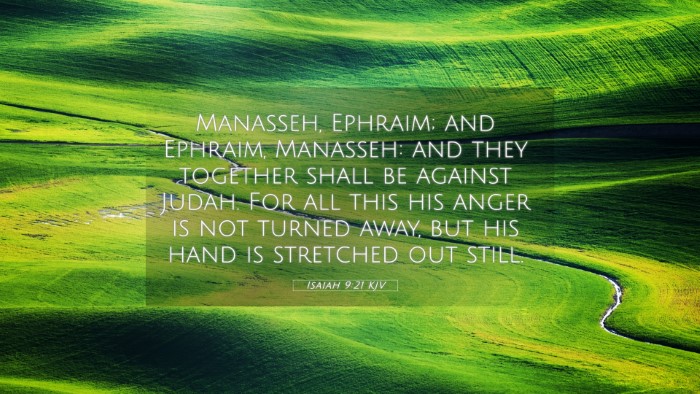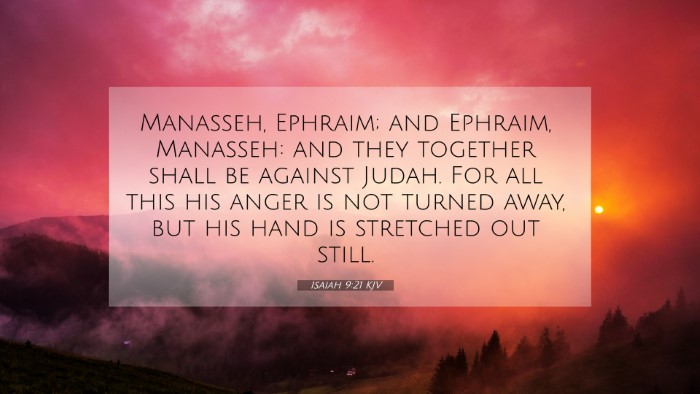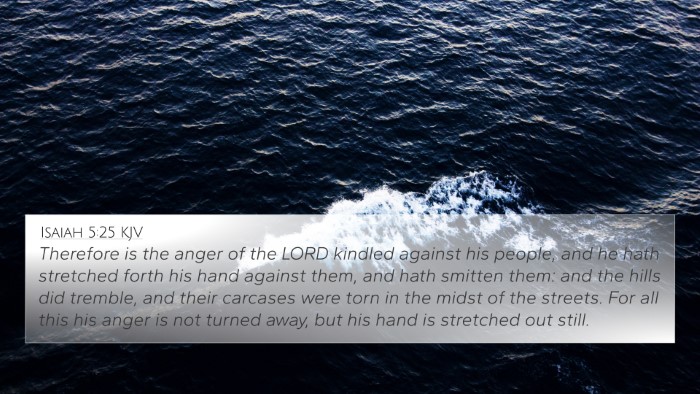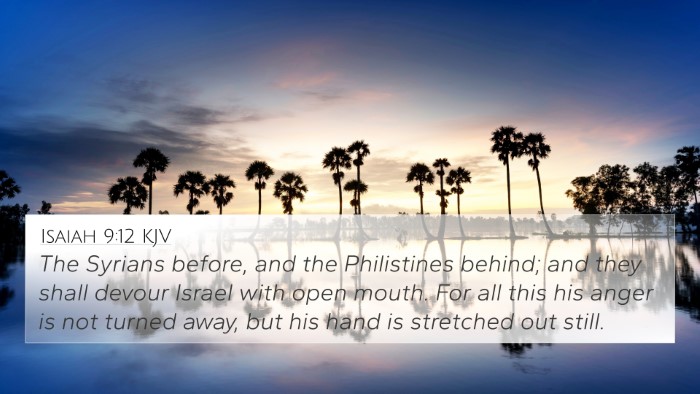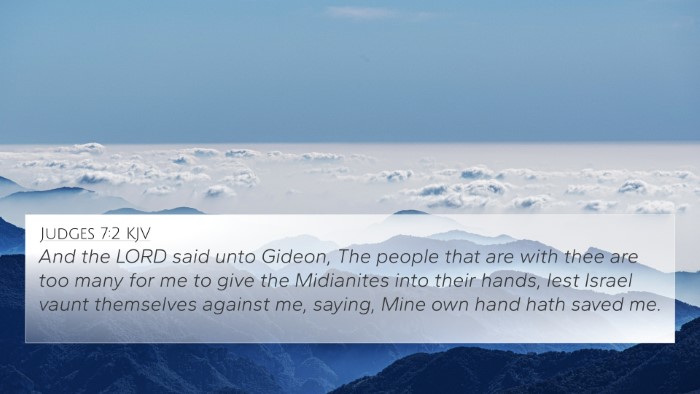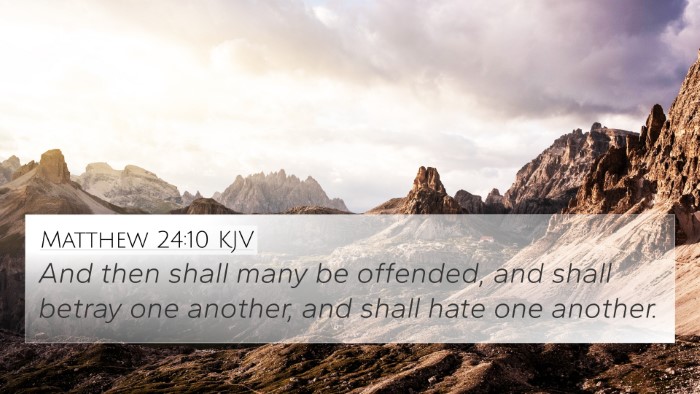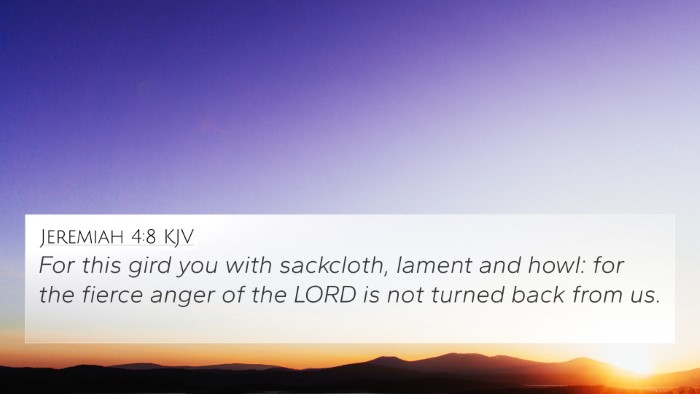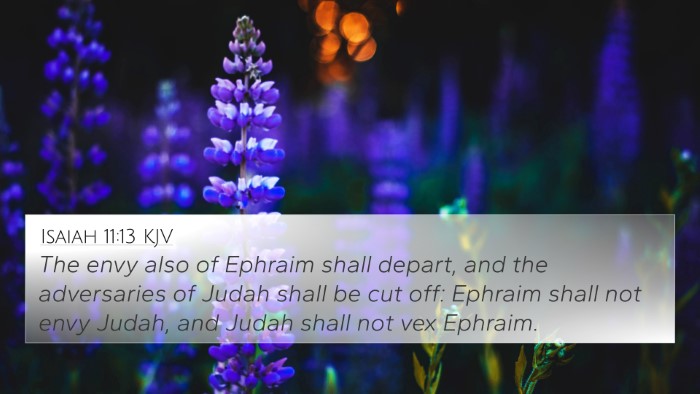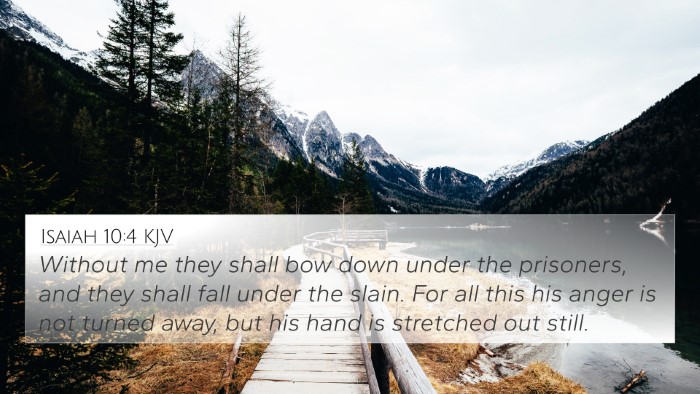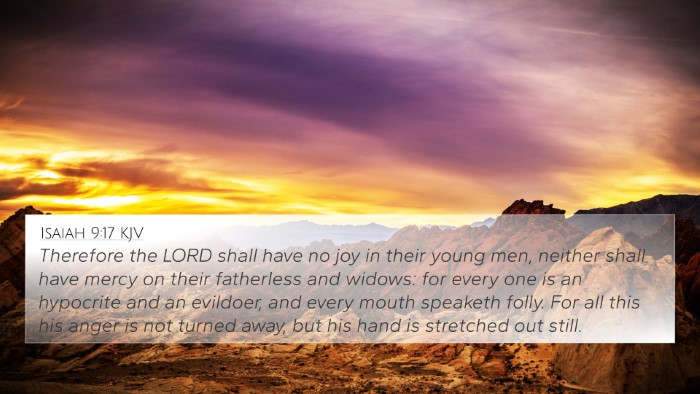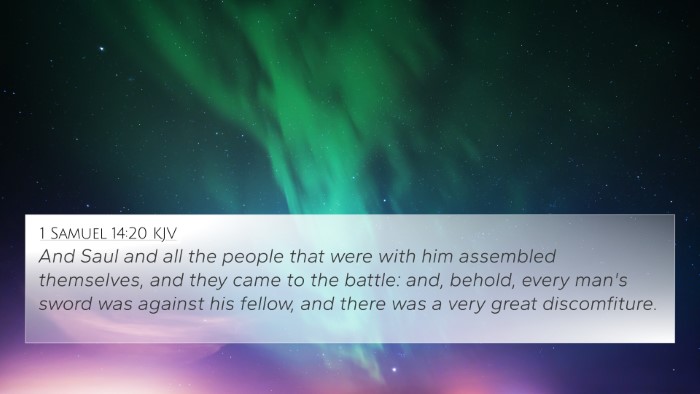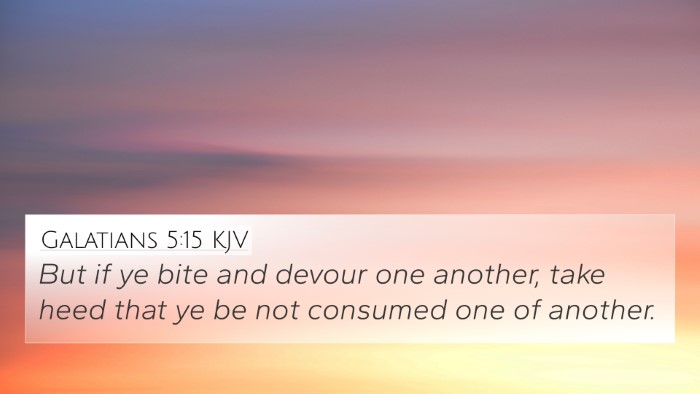Understanding Isaiah 9:21
This verse from the book of Isaiah reflects the profound themes of conflict and division within the nation of Israel during a tumultuous period. In Isaiah 9:21, we see a depiction of internal strife, where the tribes of Manasseh and Ephraim, along with the people of Judah, turn against one another. This breakdown of unity serves as a stark reminder of the consequences of moral decay and the rejection of divine guidance.
Verse Context and Meaning
The context of Isaiah 9 reveals the broader themes of judgment and hope. The prophet Isaiah speaks to a people facing imminent judgment due to their disobedience. The internal conflict among the tribes illustrates the fragmentation that often arises when a society turns away from its foundational values and divine principles.
Insights from Public Domain Commentaries
- Matthew Henry: Henry notes that this verse captures the sorrowful state of Israel, emphasizing the nature of sin to bring about division. He highlights that the internal division among the tribes indicates a withdrawal of God's favor, leading to chaos and disunity.
- Albert Barnes: Barnes interprets this verse as a warning against civil discord. He underscores the tragic folly of the tribes choosing to fight amongst themselves, rather than unite against their common foes. This self-destructive behavior is a reflection of greater spiritual failures.
- Adam Clarke: Clarke draws attention to the historical context, explaining that the enmity between Ephraim and Manasseh is rooted in past grievances. He points out that such familial conflict is reminiscent of the larger spiritual struggles that the Israelites faced, showcasing their need for repentance and reconciliation.
Cross-References and Related Verses
Isaiah 9:21 can be cross-referenced with several significant verses that help elucidate its meaning and implications:
- Micah 7:6 - Highlights familial division and betrayal, echoing the themes of internal strife depicted in Isaiah.
- James 4:1-2 - Discusses the origins of conflict stemming from desires and covetousness, reflecting the heart of human discord.
- Matthew 12:25 - Jesus teaches that a house divided against itself cannot stand, paralleling the divisions among the tribes.
- Galatians 5:15 - Warns against biting and devouring one another, which mirrors the relational strife in Isaiah’s context.
- Proverbs 18:19 - Describes how a brother offended is harder to be won than a strong city, emphasizing the consequences of broken relationships.
- Isaiah 19:2 - Prophetic imagery of God stirring up conflict among Egypt, reflecting the divine hand in the chaos of opposing factions.
- Romans 14:19 - Encourages the pursuit of peace and mutual edification, which stand in contrast to the division in Isaiah’s narrative.
Thematic Connections
This verse opens a corridor of thematic connections within the broader scriptural narrative:
- Division and Unity: The theme of division among God’s people recurs throughout Scripture, reminding believers of the importance of unity in Christ.
- Consequences of Disobedience: As seen in the fall of Israel, disobedience leads to spiritual and societal disintegration, reinforcing the need for divine alignment.
- Call to Repentance: The call for turning back to God resonates through both the prophetic statements in Isaiah and the New Testament exhortations.
Tools for Bible Cross-Referencing
To dive deeper into the connections between this verse and others, here are some tools to assist you:
- Bible Concordance: A tool to locate where specific words or phrases appear throughout Scripture.
- Bible Cross-Reference Guide: Provides a systematic approach to find meaningful connections between verses.
- Cross-Reference Bible Study: Methods to explore thematic connections, helping in sermon preparation and personal study.
- Bible Chain References: A technique to follow thematic threads through Scripture systematically.
Conclusion
Isaiah 9:21 serves as a reminder of the crucial importance of unity and the perils of division. Through cross-referencing this verse with others, we uncover a layered understanding of God’s message regarding community, loyalty, and the dire consequences of turning away from God’s guidance. As believers, we are called to strive for unity and seek reconciliation, reflecting the love and harmony that is found in our relationship with Christ.
